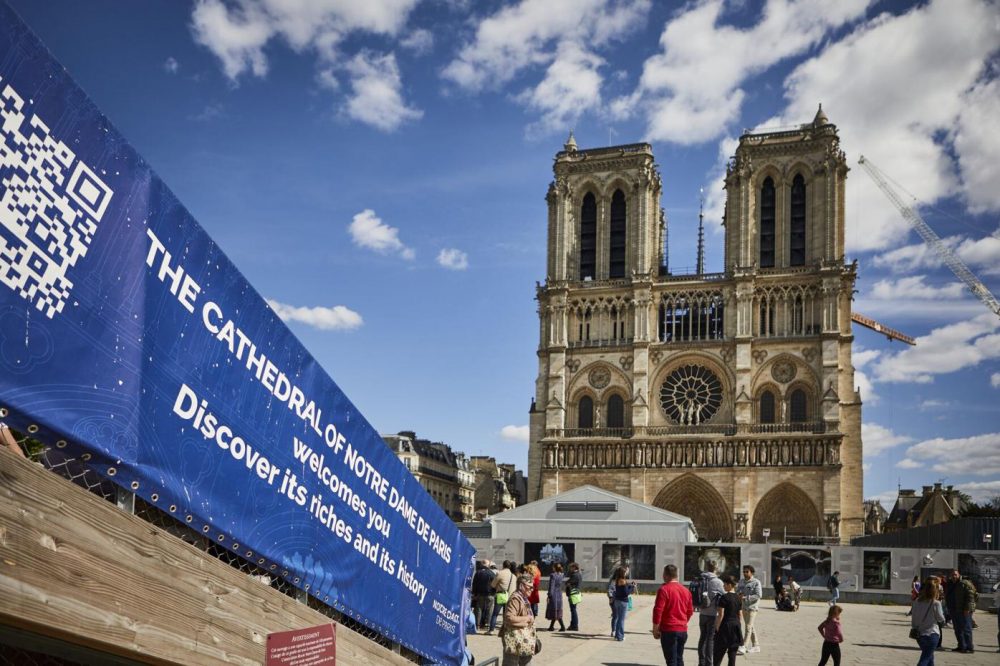Fr Paolo Consonni, MCCJ
19th Sunday Ordinary Time Year B
Gospel Reflection
The opening ceremony of the 2024 Paris Olympics featured a particular scene with drag queens and dancers lined up along a long table. Some viewers felt that it disrespectfully resembled Leonardo da Vinci’s “The Last Supper”. The organizers, not so convincingly, clarified that the scene referenced to Greek gods gathered in a banquet with Dionysus, the god of wine-making, fertility and ecstasy, and that it was intended to celebrate diversity and inclusivity.
Coincidentally, while this polemic erupted in the media, the Sundays’ Gospels kept proposing the theme of “Christ as the bread of life”. Jesus is surely not against banquets and inclusivity: his first miracle was changing water into wine and he often joined sinners at banquets. He also used the metaphor of the banquet to explain the Kingdom of Heaven. But the food he is offering is surely different from a bacchanal banquet that involves indulgence in food, drink, and revelry.
Bishop Robert Barron from the US highlighted a fundamental contrast between the depictions of deities in ancient mythologies and the Christian understanding of God. Greek gods were often portrayed as powerful beings who engaged in violent and capricious behavior. They were unpredictable and sometimes malevolent, embodying the chaotic and brutal nature of life. Christianity instead presents a God characterized by love, forgiveness, compassion, and nonviolence. This God, as revealed in the person of Jesus Christ, embodies a commitment to peace and reconciliation, standing in stark contrast to the often violent and retributive gods of ancient myths.
In any case, the food consumed by the athletes in preparation for their competitions is far from being a fancy banquet, as it is meticulously measured and tailored to optimize their performance. The discipline required to adhere to such strict dietary guidelines mirrors the mental fortitude needed to excel in sports. When our appetite is challenged, so too is our willingness to persevere.
This Sunday’s readings could be read in this context. In the first reading Elijah, scared and exhausted, is tempted to give up his mission and to end his life. An angel gave him a cake baked on hot stones, and a jar of water. He told Elijah: “Get up and eat, otherwise the journey will be too much for you.”. Elijah got up, and ate and drank; “then strengthened by that food, he walked forty days and forty nights to the mountain of God”. (1 Kings 19:4-8) There, Elijah encountered the Lord and regained strength and motivation to continue his mission. We are made of matter and spirit: Elijah needed some nourishment but also some words of encouragement. God tailored for him the right diet to keep him going on his journey.
In the Gospel (John 6:41-51), the Jews mentioned the “manna”, the food God sent them to sustain their long journey toward freedom. They saw in the manna the sign of God’s loving care in times of need and the concrete expression of the Covenant that God made with them. But it was not easy for the people of Israel to accept the demands of this Covenant, which requires honesty, discipline, and perseverance. Interestingly, their difficulty to accept these demands started by complaining about their diet: “We remember the fish we used to eat in Egypt for nothing, the cucumbers, the melons, the leeks, the onions, and the garlic; but now our strength is dried up, and there is nothing at all but this manna to look at. […] We detest this miserable food!” (Num 11: 5-6; 21:5) That generation was not ready to enter into the promised land, the “golden medal” of any spiritual journey and the symbol of true freedom.
In this Sunday’s Gospel, Jesus proposes Himself as the food that enables us to fulfill the Covenant and gain life and freedom. He invites us to feed on His love, forgiveness and mercy. The Jews were quite skeptical about the diet proposed by Jesus: “I am the living bread of life” (Jn 6:48-51). Yet, those who have tried it, like St. Paul in the second reading, assure us that that food is delicious: “So be imitators of God, as beloved children, and live in love, as Christ loved us and handed himself over for us as a sacrificial offering to God for a fragrant aroma.” (Eph 5:2). “Fragrant aroma” is the first characteristic of exquisite cuisine.
The open letter that the Holy See sent to the athletes of the Olympics emanates Christ’s “fragrant aroma”. It says that athletes should embody the true values of sport: passion, inclusion, fraternity, team spirit, loyalty, redemption, commitment and sacrifice. Sport is a journey through life that is never done alone, and it must maintain the amateur spirit of gratuitousness, that style of simplicity that puts a hold on the immoderate pursuit of money and success at all costs. The Olympics, says the letter, “can be strategies for peace and antidotes to war games. To win, all must work together and the medal won is that of fraternity”. This is the banquet humanity is hungry for.


 Follow
Follow


